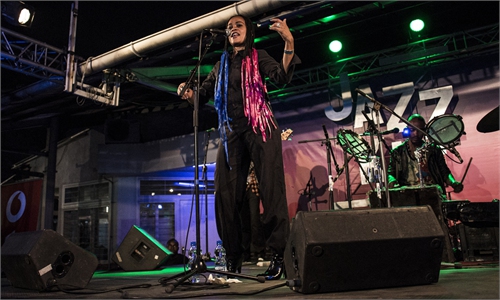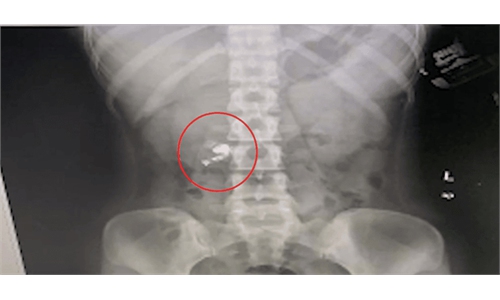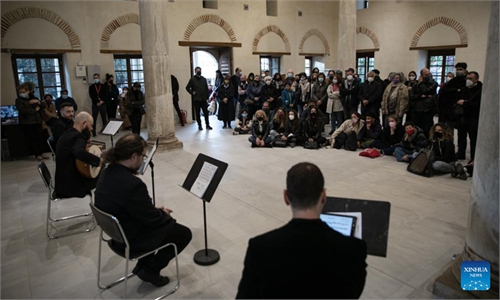ARTS / MUSIC
‘Beethoven in Beijing’ delves into China-US cultural relations
Music diplomacy
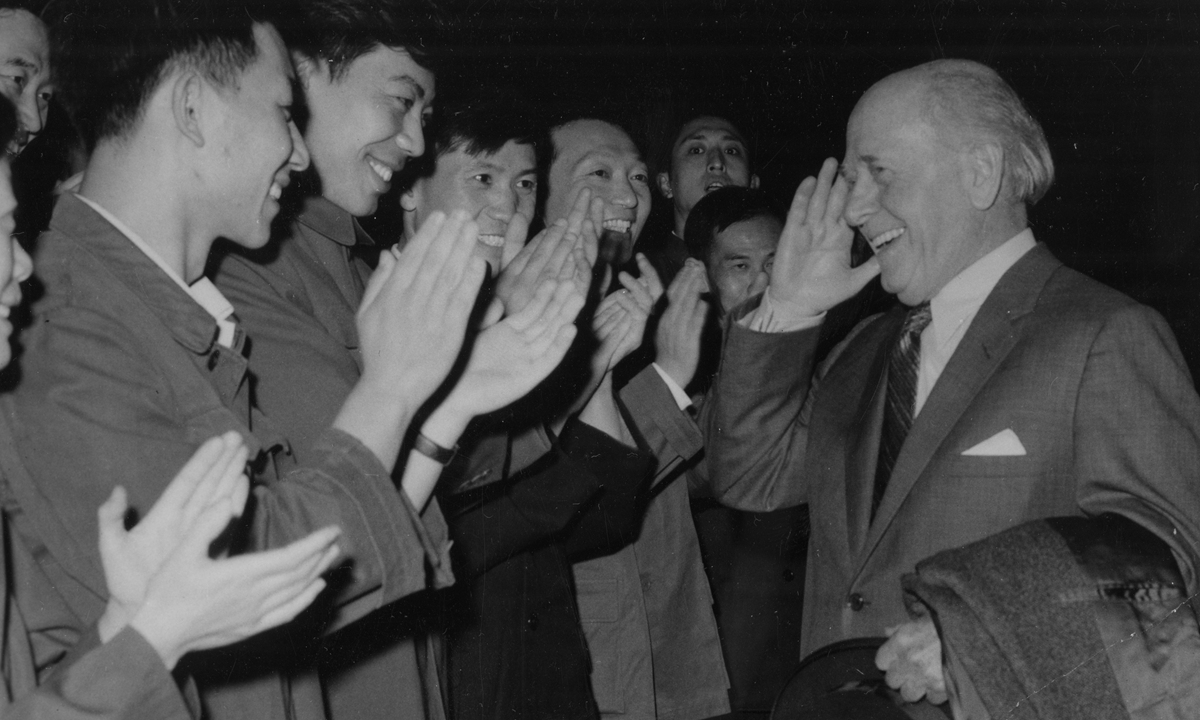
Musicians from the US Philadelphia Orchestra interact with their Chinese counterparts during their tour of China in 1973. Photos: Courtesy of Jennifer Lin
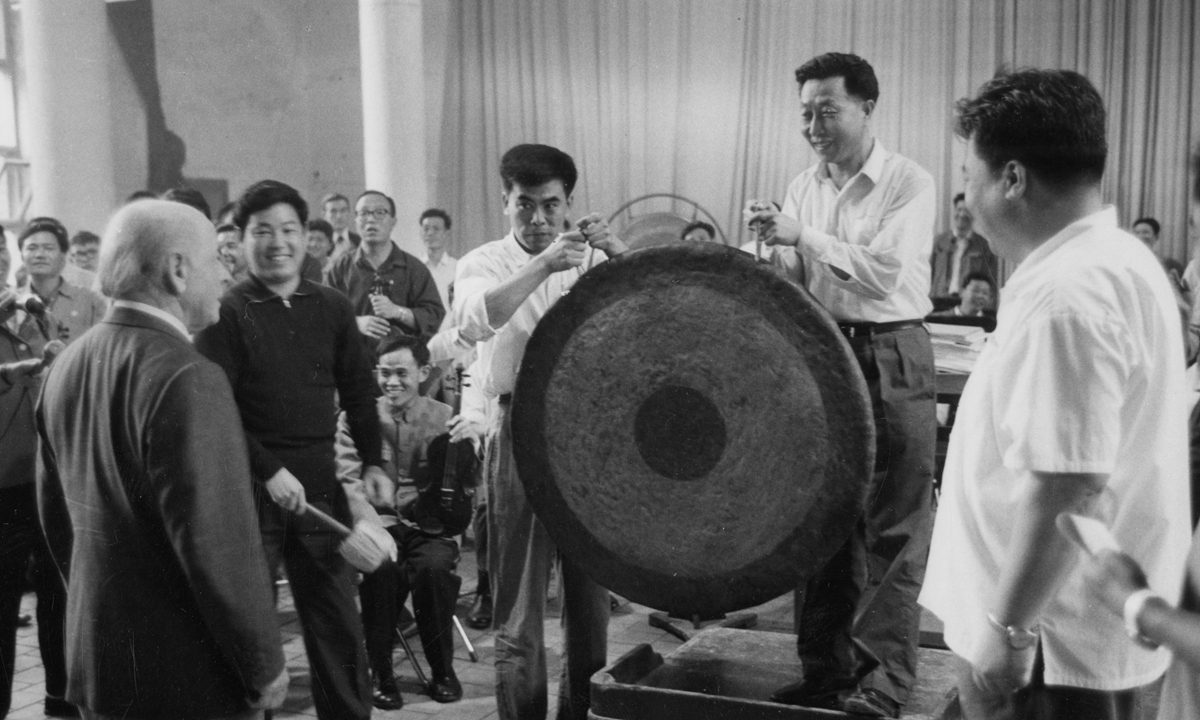
Musicians from the US Philadelphia Orchestra interact with their Chinese counterparts during their tour of China in 1973. Photos: Courtesy of Jennifer Lin
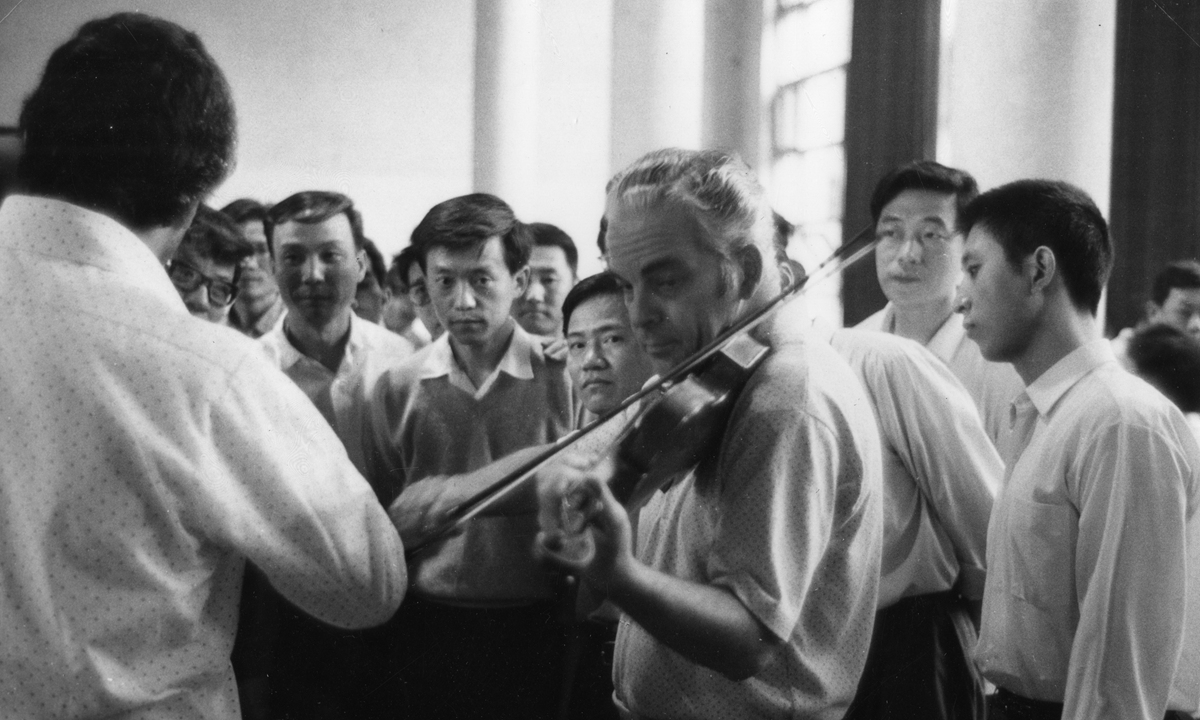
Musicians from the US Philadelphia Orchestra interact with their Chinese counterparts during their tour of China in 1973. Photos: Courtesy of Jennifer Lin
In 1973, as violinist Bob de Pasquale was walking through an alley in East China's Shanghai Municipality during the US Philadelphia Orchestra's tour to the city, he heard a young boy practicing violin on a balcony.De Pasquale got the boy to come down and, right there on the sidewalk, gave him an impromptu violin lesson. Then the Philadelphia musician took the student's violin and played music by Sibelius and Bach. A large crowd gathered around him, intrigued by the music.
"That was the highlight of my trip," De Pasquale said.
"World leaders should have been there watching this. This is what it's all about."
This beautiful story is recorded in the book Beethoven in Beijing, written by journalist, author and documentary filmmaker Jennifer Lin, who once directed the documentary of the same name that aired as part of US TV station PBS' Great Performances program in 2021.
The book has been published by Temple University Press on Friday as 2022 marks the 50th anniversary of US president Richard Nixon's visit to China.
In 1973, the Philadelphia Orchestra started its two-week-long tour of China with six performances in Beijing and Shanghai, one year after US president Richard Nixon's historic visit to China in February 1972.
Both sides wanted a cultural element to the relationship and the invitation to the Philadelphia Orchestra was part of that. China's first premier Zhou Enlai endorsed the concept of "music diplomacy," the idea that culture and art could help the process of normalizing relations.
"I felt that this was an important chapter in the history of US-China relations that merited even further exploration," Lin told the Global Times on Tuesday, adding that when she interviewed De Pasquale, she was attracted by his story, which is also one of her favorites in the book.
Going deeper
Lin said she decided to write a book version of Beethoven in Beijing because there was more to say and she wanted to go deeper on the significance of the visit.
Lin spent years researching the 1973 tour and interviewing musicians in China and Philadelphia, but only a fraction of her research made it into the documentary. In the book she includes a considerable amount of new material, including excerpts from personal journals, newspaper accounts, and unclassified diplomatic cables between US officials in Beijing and Washington DC.
"In 1973, there were few Americans living in China - by some estimates, fewer than 100. The tour left a lasting impression on the Philadelphia musicians, as well as on the Chinese people they encountered. I decided to write the book as oral history, allowing them to tell their stories in their own words."
The whole book uses well-known Chinese-American musician Tan Dun as a thread to bring everything together. Tan was a teenager working on a commune when he heard the news about the Philadelphia Orchestra's visit. "Somehow, the seed of my future was planted," Tan recalled. Many years later, he became a renowned composer and would premiere his Nu Shu symphony with the Philadelphia Orchestra in his hometown in Central China's Hunan Province. His story represents the impact that the visit had on Chinese people.
Lin also shared another interesting story that shows the Philadelphia Orchestra members' interest in traditional Chinese medicine, or TCM.
Many violinists suffer from sore necks and bad backs. It's an occupational hazard. De Pasquale suffered from chronic pain and was curious about acupuncture treatment. In Beijing, he tried it and was pleasantly surprised to discover the pain was reduced considerably.
When De Pasquale returned home, he found a Chinese doctor in Philadelphia and continued to receive acupuncture treatments for the rest of his professional career.
'An enduring legacy'
Lin has included a lot of details and fascinating stories that occurred in 1973 in the book. She noted she has acquired a better understanding and appreciation of the power of culture and art to connect people after writing the book.
"Both the film and the book remind us of the power of music to connect us. That is as important today as it was in 1973," she said.
Lin said in a recent interview that the two countries' communication in music, art and culture has never ceased and remains healthy despite a rise in tense political relations.
"A lot of people know about 'Ping-Pong Diplomacy,' but you could argue that 'music diplomacy' has left a more enduring legacy. Nowadays, there is so much back and forth between musicians in China and the US. That can only help our understanding of each other," she told the Global Times, noting that New York University has opened another campus in Shanghai and that the Juilliard School opened a branch in Tianjin.
Lin said she welcomes Chinese readers to read this account of history and hopes that they find these events "as intriguing as I did."
"They are part of our shared history," she noted.

